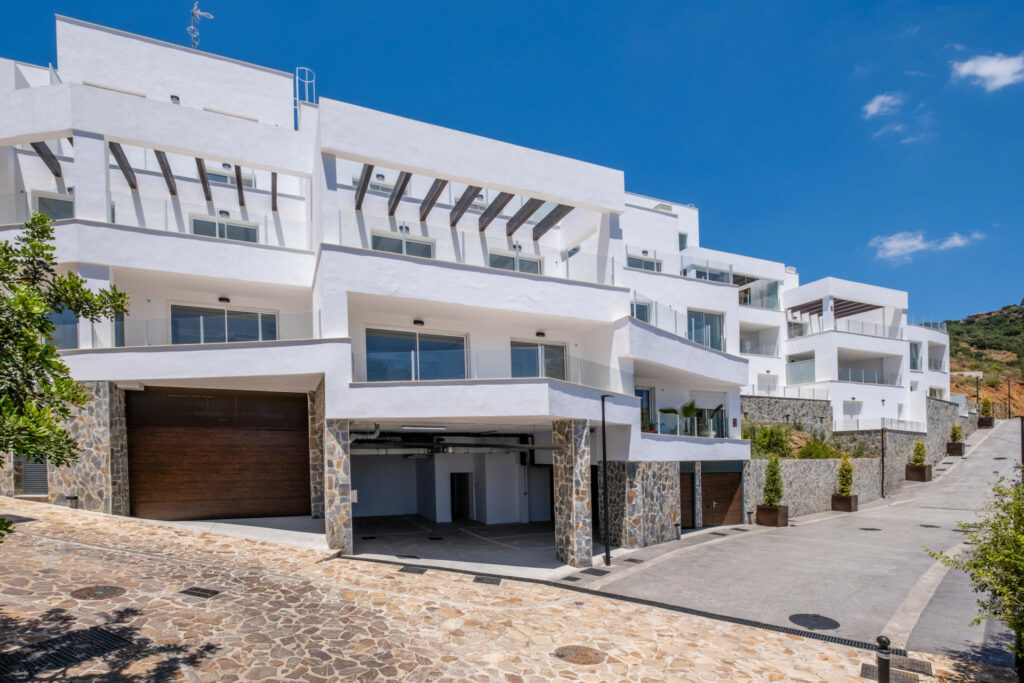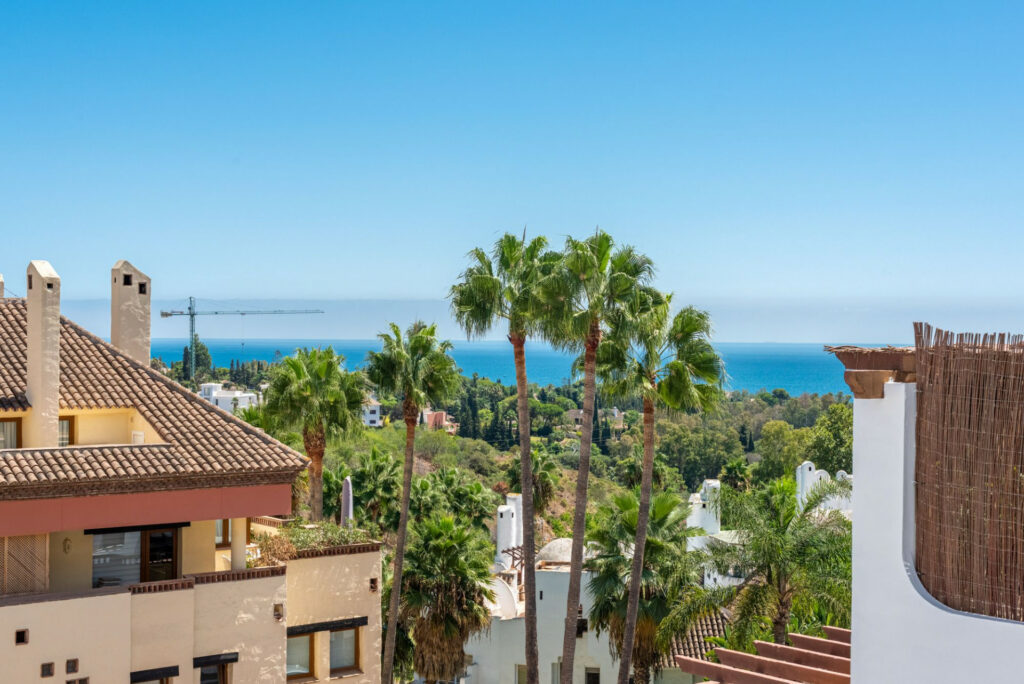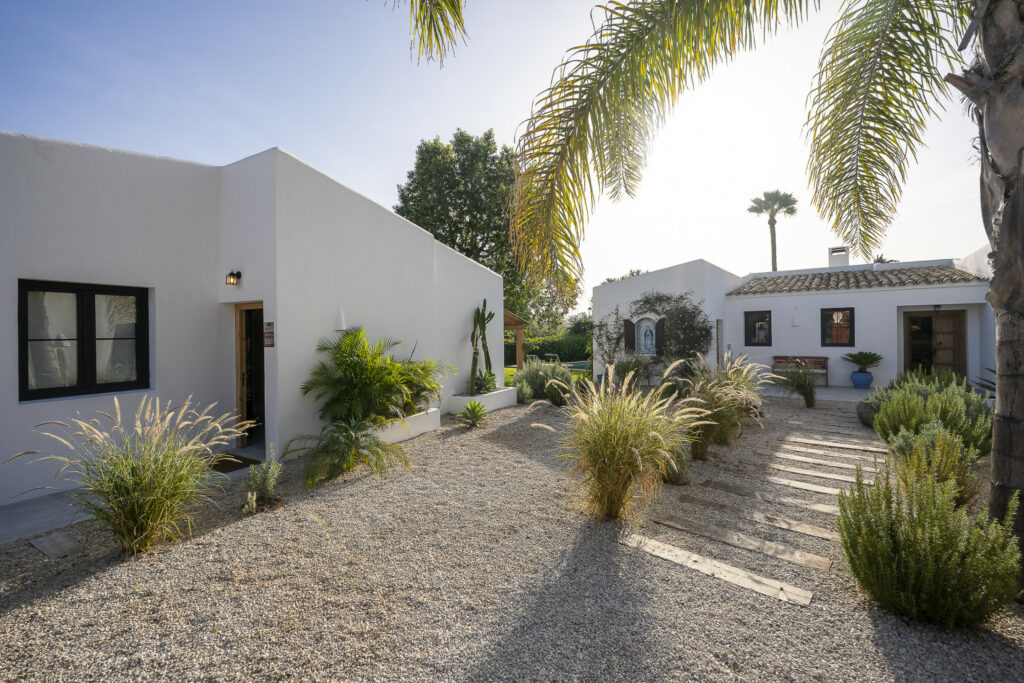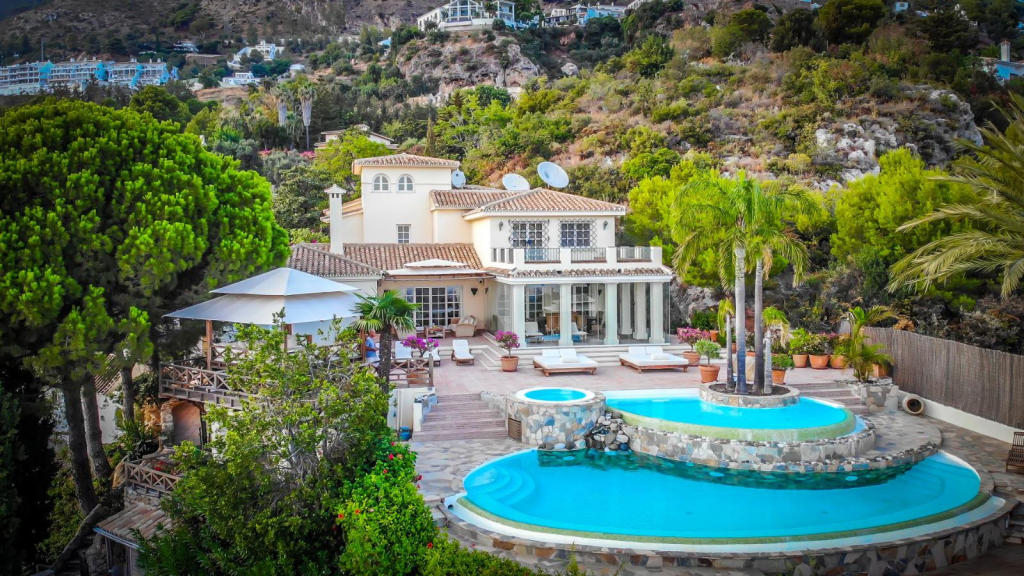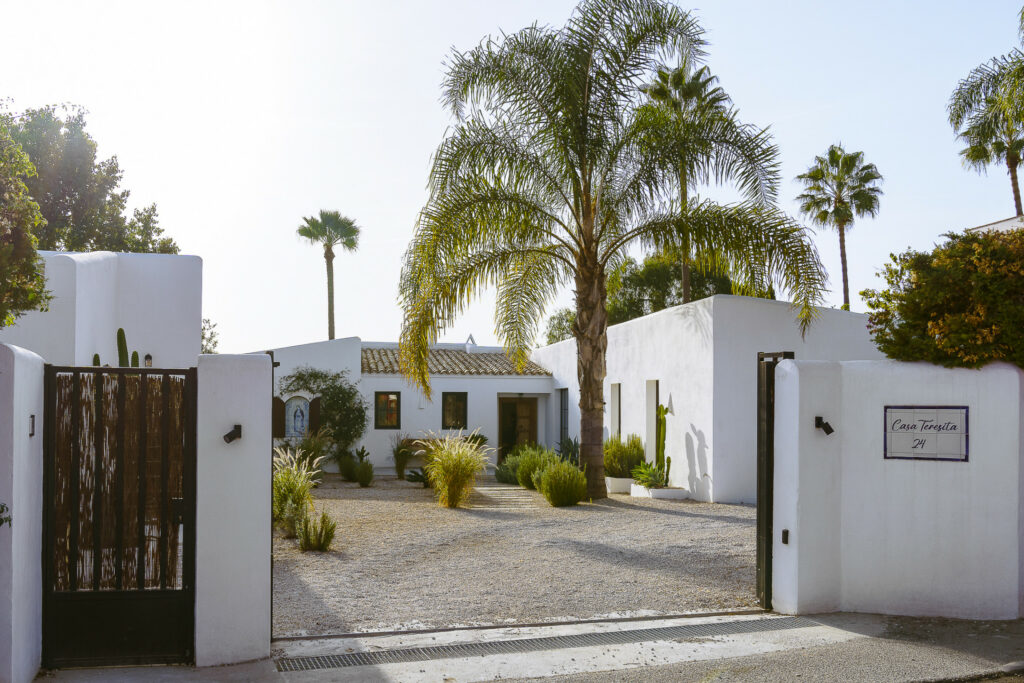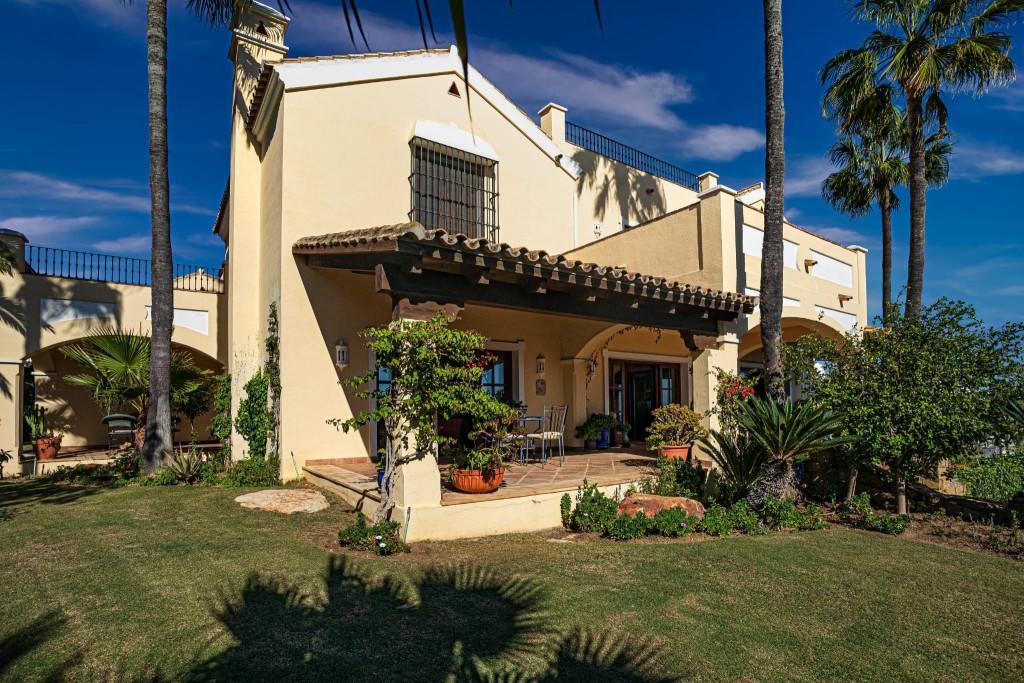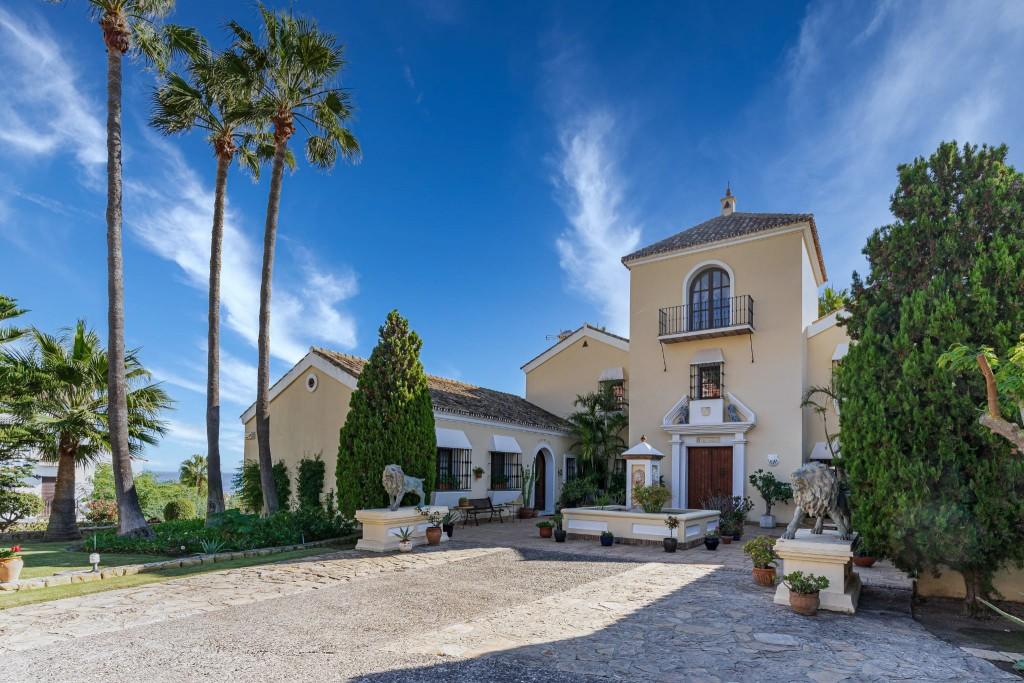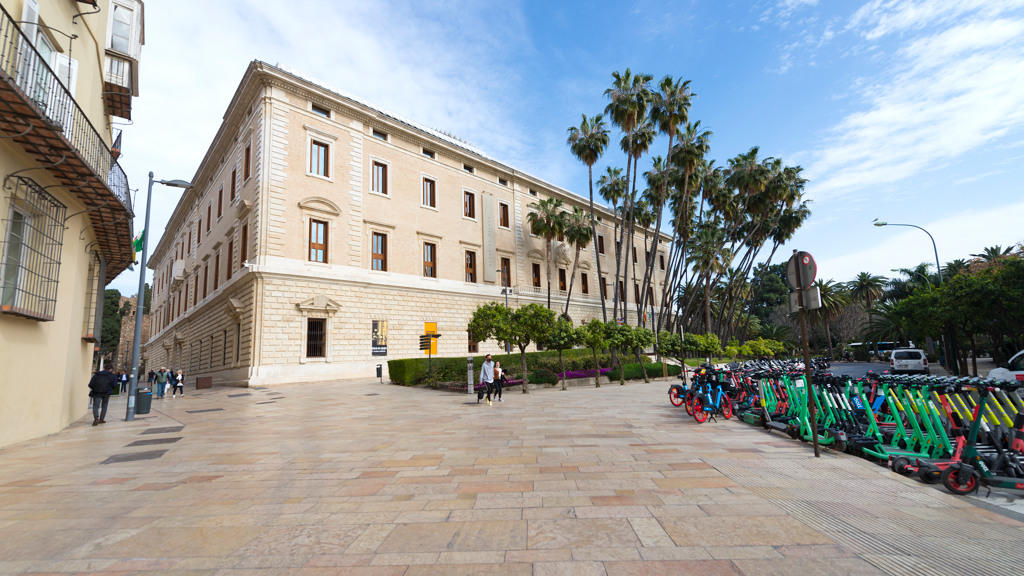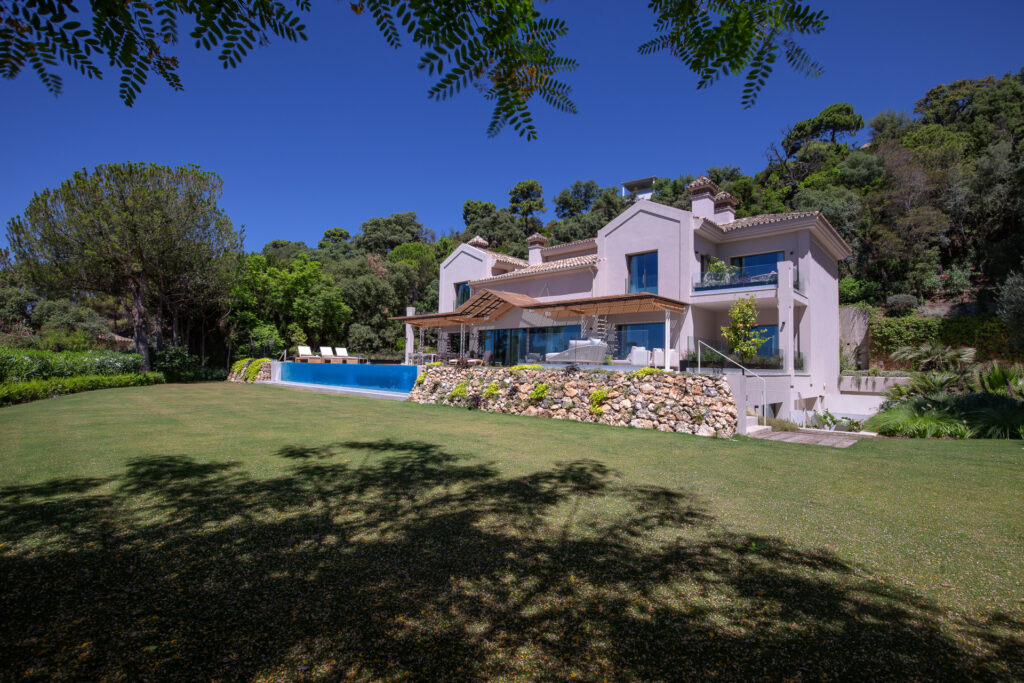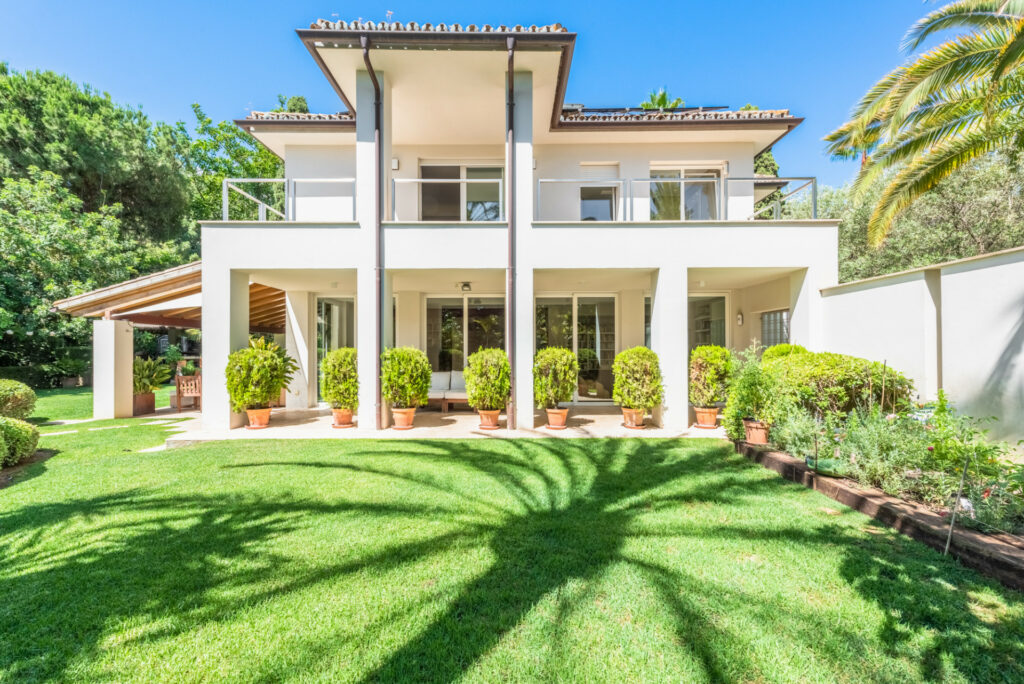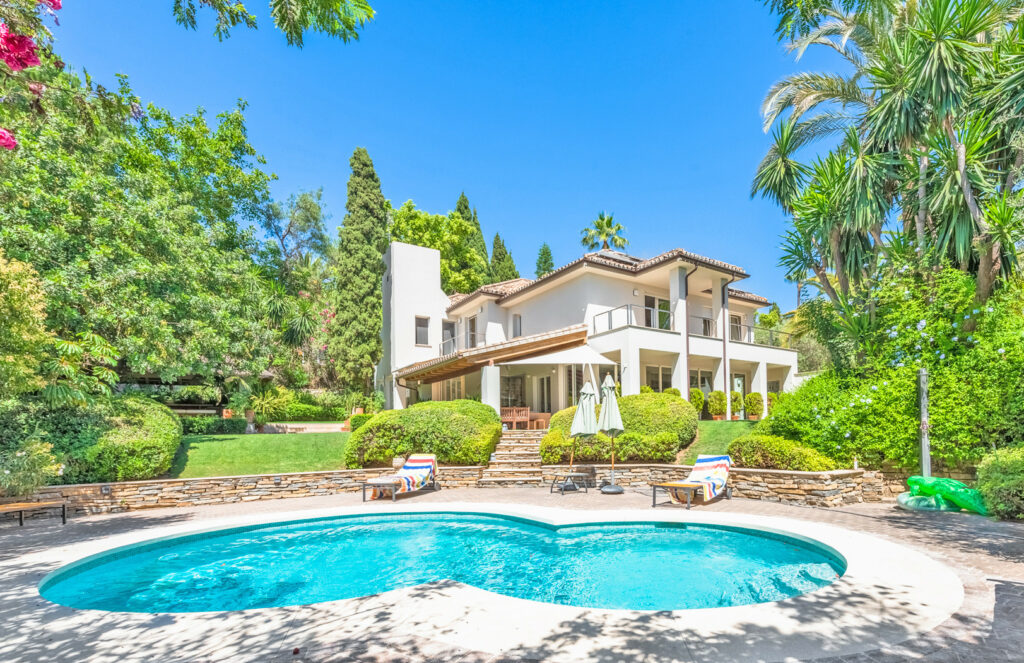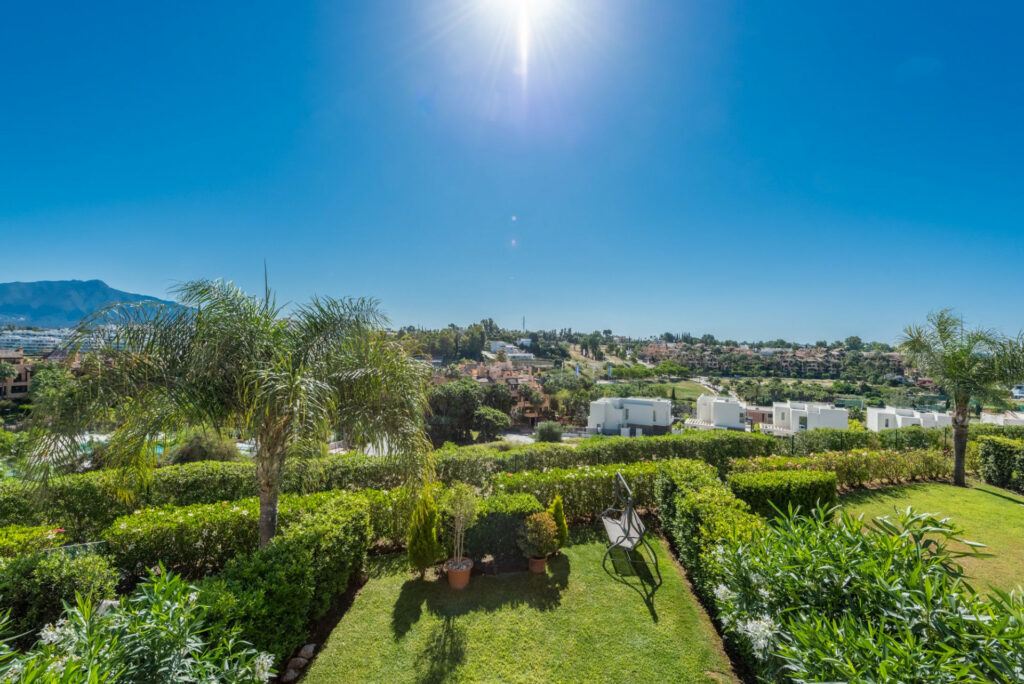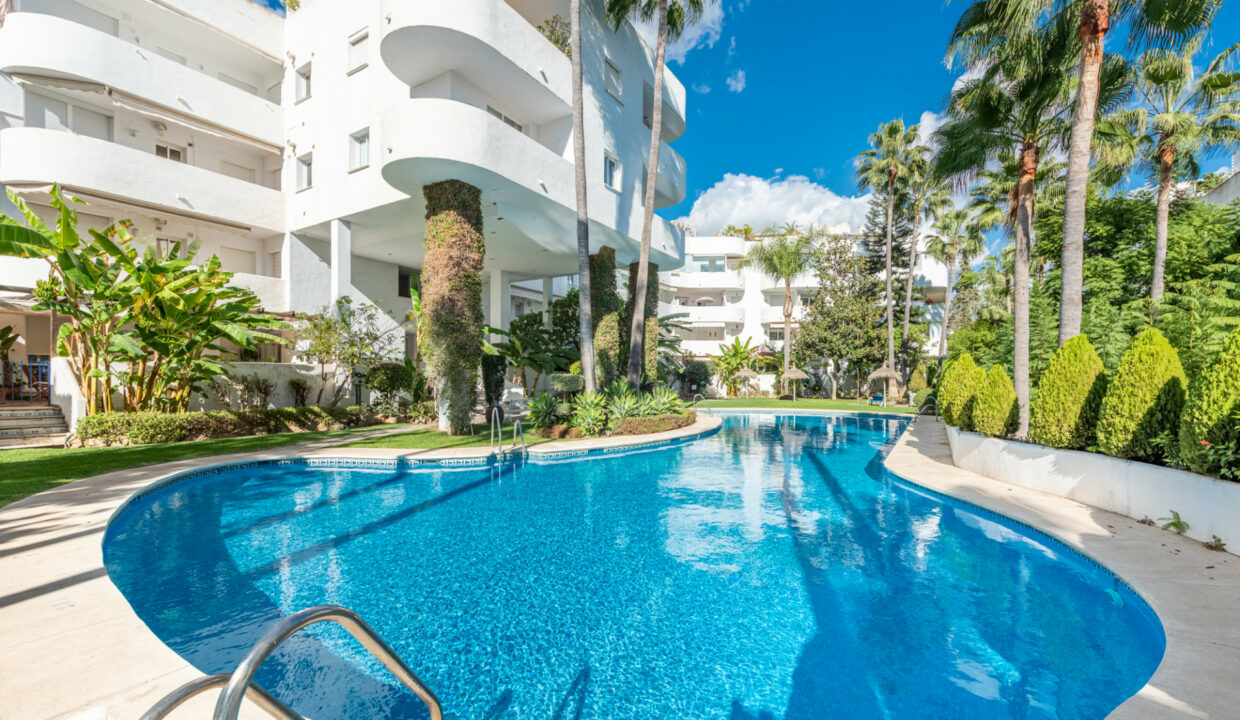
A Guide to Buying a Property in Spain
This guide to buying a property in Spain contains information and advice and we hope you find it helpful
Spain is a popular destination for foreign buyers looking to purchase Spanish properties. With its warm climate, beautiful beaches, and rich cultural heritage, it’s easy to see why so many people are drawn to this country. However, buying a property in Spain can be a complicated process, especially for foreign buyers who are not familiar with the country’s laws and customs. In this article, we will provide a comprehensive guide to buying a property in Spain. If you want to buy property in Spain, we hope this article helps.
Index
Buying a property in Spain
Questions to ask the buyer, when buying a property in Spain
Can I buy a property in Spain from the UK
Can expats buy and own property in Spain?
What’s the process of buying a property in Spain?
Spanish mortgage information, mortgage rates and buying fees?
What documents do I need to buy a Spanish property?
What’s the cost of buying a property in Spain?
What do I need to know about owning a property in Spain?
What bills are involved with owning a property in Spain?
What types of property are there in Spain?
Estate agents in Spain
Viewing property in Spain and making an offer
Hiring a solicitor or notary and arranging a survey
Selling a property in Spain
What fees are involved in selling a property in Spain?
What are the pitfalls of buying a property in Spain?
How to choose an area to buy in Spain?
What areas in Spain, are best for expats?
Where is the best place to buy a property in Andalucia?
What areas on the Cost del Sol are best to buy for expats?
Spanish property, what are the average prices?
Buying a Property in Spain
Finding a Property
The first step in buying a property in Spain is the “property search” and finding the right property for you. You can search for properties online, through local real estate agents, or by attending property exhibitions. It’s important to take your time with the Spanish property market and do your research to find the right property that meets your needs and budget.
Hiring a Lawyer
Once you have found a property that you like, it’s important to hire a lawyer who specializes in Spanish property law. A good lawyer can help you navigate the legal process of buying a property in Spain and ensure that all the necessary paperwork is in order. They can also help you with any language barriers and ensure that you fully understand the terms of the purchase agreement
Obtaining an NIE Number
To buy a property in Spain, you will need an NIE (Número de Identificación de Extranjero) number. This is a tax identification number that is issued to foreigners by the Spanish government. You will need this number to open a bank account, sign a purchase agreement, and pay taxes.
Signing the Purchase Agreement
Once you have found a property and hired a lawyer, the next step is to sign a purchase agreement. This agreement outlines the terms of the sale, including the purchase price, payment schedule, and any conditions or contingencies. It’s important to have a lawyer review the purchase agreement before you sign it to ensure that everything is in order.
Paying a Deposit
After you have signed the purchase agreement, you will typically be required to pay a deposit. This deposit is usually around 10% of the purchase price and is held in an escrow account until the sale of buy property is completed.
Completion
The final step in buying a property in Spain is completion. This is when the remaining balance of the purchase price is paid, and the property is officially transferred to your name. At this point, you will also need to pay any taxes and fees associated with the purchase.
Additional Considerations
It’s important to note that there are some additional considerations to keep in mind when buying a property in Spain. These include:
Property Taxes
You will be responsible for paying property taxes on your Spanish property, which can vary depending on the location and value of the property.
Maintenance Fees
If you are buying a property in a gated community or condominium, you may be required to pay maintenance fees for common areas and amenities.
If you plan to spend a significant amount of time in Spain, you may want to consider obtaining residency status. This can make it easier to purchase property and conduct other business in the country.
Questions to ask the buyer, when buying a property in Spain
When buying property in Spain, it’s important to ask the right questions to ensure that you have all the information you need to make an informed decision. Here are some key questions to ask the seller or their agent when considering buying property on the Spanish property market:
Why is the seller selling the property?
Knowing why the seller is selling the property can help you understand the motivation behind the sale and whether there are any issues with the property that the seller may not be disclosing.
How long has the property been on the market?
If the property has been on the market for an extended period, it may indicate that there are issues with the property or that the price is too high.
What is included in the sale?
It’s important to know what is included in the sale, such as appliances, furniture, or fixtures. This can affect the overall value of the property and your future expenses.
What is the asking price?
Knowing the asking price can help you determine whether the property is within your budget and whether the seller is open to negotiation.
Have there been any recent renovations or repairs?
Knowing if there have been any recent renovations or repairs can give you an idea of the overall condition of the property and any potential maintenance or repair costs in the future.
Are there any outstanding debts or liens on the property?
It’s important to know if there are any outstanding debts or liens on the property, as these can become your responsibility as the new owner.
What is the community like?
Understanding the community and neighbourhood where the property is located can help you determine if it’s the right fit for your lifestyle and preferences.
What are the property taxes and other ongoing expenses?
Knowing the property taxes and any other ongoing expenses associated with the property can help you understand the true cost of ownership.
Are there any zoning or building restrictions?
Understanding any zoning or building restrictions can help you determine if you will be able to make any modifications or additions to the property in the future.
What is the process for transferring ownership?
Knowing the process for transferring ownership can help you prepare for the legal and financial aspects of the purchase and ensure that everything is completed properly.
By asking these questions and others that may be relevant to your specific situation, you can make a more informed decision when buying in Spain. It’s also important to work with experienced professionals, such as a real estate agent and a lawyer, to ensure that the process goes smoothly and that all legal and financial requirements are met.
Can I buy a property in Spain from the UK?
Yes, you can buy a property in Spain from the UK. In fact, many UK citizens have purchased properties in Spain for vacation and holiday homes only, investment properties, or to live permanently. The process of buying a property from the UK is similar to buying property within the UK, although there are some additional steps and considerations to keep in mind.
One important thing to note is that since the UK is no longer a member of the European Union, there may be changes to some of the legal and financial aspects of buying property. For example, UK citizens may need to obtain a visa to enter Spain or may face different tax implications than EU citizens. It’s important to consult with professionals, such as a real estate agent and a lawyer, who are familiar with the current regulations and requirements.
The basic steps for buying property in Spain from the UK include:
Research and find the right property
You can search for properties online, hire a real estate agent in Spain, or attend property exhibitions or auctions.
Visit the property
If possible, visit the property in person to get a better understanding of its condition and location.
Hire professionals
Consider hiring a lawyer who is familiar with Spanish property law and a translator if you don’t speak Spanish.
Secure financing
If you require financing, you can seek a mortgage from a Spanish or UK bank.
Make an offer and sign a contract
Once you’ve found the right property, you’ll make an offer and sign a contract. The contract should outline all the terms and conditions of the sale, including the price, payment terms, and closing date.
Pay a deposit
You’ll typically need to pay a deposit, usually around 10% of the purchase price, to secure the property.
Complete the purchase
The final step is to complete the purchase, which involves signing the final deed of sale before a notary public and paying the remaining balance.
By following these steps and working with experienced professionals, you can successfully buy a property in Spain from the UK.
Can expats buy and own property in Spain?
Yes, expats can buy and own property in Spain. In fact, Spain is a popular destination for expats looking to purchase vacation homes or relocate permanently. The process of buying property in Spain is similar for both expats and Spanish nationals.
There are no restrictions on expat, foreign buyers, or non-Spanish nationals buying property in Spain, and the legal process is straightforward. However, it’s important to understand the tax and legal implications of buying and owning property in Spain as an expat. Here are some important considerations:
Residency status
Expats who spend more than 183 days a year in Spain are considered Spanish tax residents and must pay Spanish taxes on their worldwide income. However, there are tax exemptions and deductions available for expats who meet certain criteria.
Property taxes
Property owners in Spain are subject to property taxes, including an annual property tax called the IBI (Impuesto sobre Bienes Inmuebles). The amount of the tax varies depending on the value of the property.
Capital gains tax
If an expat sells a property in Spain, they may be subject to capital gains tax, which is based on the difference between the purchase price and the sale price of the property.
Legal and language considerations
Expats may want to work with a lawyer who is familiar with Spanish property law and a translator if they don’t speak Spanish.
Financing
Expats may be able to obtain financing from Spanish banks, but they may also be able to finance the purchase through banks in their home country.
Estate planning
Expats should consider how their property will be distributed in the event of their death and work with a lawyer to ensure that their wishes are followed.
Expats can buy and own property in Spain, but it’s important to understand the legal and financial implications of doing so. Working with professionals who are familiar with Spanish property law and taxation can help ensure a smooth and successful purchase.
What’s the process of buying a property in Spain?
The process of buying a property in Spain can vary slightly depending on the specific circumstances of property purchases and the location of property buyers, but generally, it involves the following steps:
Find the right property
Research and visit properties that fit your needs and budget. You can search online, work with a real estate agent, or attend property exhibitions or auctions.
Conduct due diligence
Once you’ve found a property you’re interested in, you’ll need to conduct due diligence to ensure that the property is in good condition and has no legal or financial issues. This may involve hiring a surveyor, a lawyer, and a translator to review the property and any documents related to the sale.
Make an offer
If you’re satisfied with the due diligence and want to proceed with the purchase, you’ll make an offer to the seller. The offer will typically include the purchase price, payment terms, and any conditions or contingencies.
Sign a preliminary contract
If the seller accepts your offer, you’ll sign a preliminary contract, also known as a “reservation contract” or “pre-contract.” This contract is binding and typically requires a deposit of 10% of the purchase price.
Secure financing
If you need financing, you’ll need to apply for a mortgage from a Spanish bank or from a bank in your home country.
Sign the final contract
Once you’ve secured financing and completed any other necessary steps, you’ll sign the final contract, also known as the “deed of sale.” This contract is signed before a notary public and transfers ownership of the property to you. At this point, you’ll pay the balance of the purchase price and any associated fees, such as transfer tax, notary fees, and property registration fees.
Register the property
After signing the final contract, you’ll need to register the property with the local Land Registry to establish legal ownership of rent property.
The process of buying a property in Spain can take several weeks or months, depending on various factors such as the location, condition of the property, and financing options. Working with experienced professionals, such as a real estate agent and a lawyer, can help ensure a smooth and successful purchase.
Spanish mortgage information, mortgage rates and buying fees?
If you’re considering buying a property in Spain, you may need to obtain a mortgage to finance the purchase. Here’s some important information about Spanish mortgages, mortgage rates, and buying fees:
Spanish Mortgages
· Spanish mortgages are available to both residents and non-residents of Spain. Spanish banks and lenders typically offer mortgages of up to 70% of the property value for non-residents, and up to 80% for residents. The maximum term for a Spanish mortgage is typically 25 years.
Mortgage Rates
Mortgage rates in Spain can vary depending on a variety of factors, including the lender, the term of the mortgage, and the borrower’s credit history. As of 2021, the average interest rate for a 25-year fixed-rate mortgage in Spain was around 2%. However, mortgage rates can fluctuate over time, so it’s important to stay informed and compare rates from multiple mortgage lenders beforehand.
Buying Property Fees
In addition to the purchase price of the property, there are several fees and taxes associated with buying a property in Spain. These may include:
Transfer Tax (Impuesto sobre Transmisiones Patrimoniales)
This tax is payable by the buyer and is based on a percentage of the purchase price. The percentage varies depending on the location of the property and can range from 6% to 10%.
Notary Fees
Notary fees are paid to the notary public who oversees the signing of the final contract. The fees and notary costs vary depending on the value of the property and the complexity of the transaction.
Property Registration Fees
These fees are paid to the Land Registry to register the property in the buyer’s name. The fees are typically based on the value of the property and can range from 0.5% to 2% of the purchase price.
Legal Fees
Legal fees are paid to a lawyer who represents the buyer’s interests during the purchase process. The fees vary depending on the complexity of the transaction and the scope of the legal services provided.
The fees associated with buying property in Spain can add up to several thousand euros. It’s important to budget for these costs when considering the affordability of a property purchase in Spain.
What documents do I need to buy a Spanish property?
When buying property in Spain, the following documents are generally required:
NIE (Número de Identificación de Extranjero)
This is a foreigner identification number that is required for all non-Spanish residents who want to buying property in Spain
Certificate of Habitability
This certificate confirms that the property meets the minimum living standards and is fit for habitation.
Property Register Extract
This document provides information about the property’s ownership and any existing debts, liens, or mortgages.
Property Deed (Escritura de Compraventa)
This is the legal document that confirms the purchase and transfer of ownership from the seller’s estate agent to the buyer.
Land Registry Certificate (Nota Simple)
This document confirms that the property is registered with the Land Registry office and includes information on the property’s location, size, boundaries, and any restrictions.
Proof of payment
This includes documentation that shows that the property has been paid for in full, such as a bank transfer receipt.
Property Taxes
The buyer must pay any outstanding property taxes owed by the seller before the sale can be completed.
It’s always a good idea to consult with a lawyer or a professional conveyancer to ensure that you have all the necessary documentation and that the transaction goes smoothly.
What’s the cost of buying a property in Spain?
The cost of buying a property in Spain can vary depending on several factors, such as the location, the size of the property, the age of the property, and whether it is a new or resale property. In addition to the property’s purchase price, there are also various associated costs and taxes that you will need to consider, such as:
Property transfer tax (Impuesto de Transmisiones Patrimoniales, ITP)
This tax applies to the purchase of resale properties and varies by region, but it typically ranges from 6% to 10% of the property’s purchase price.
Value Added Tax (IVA)
This tax applies to the purchase of new properties, and it is currently set at 10% of the purchase price.
Notary fees
These fees are set by the Spanish government and typically range from 0.1% to 0.5% of the property’s purchase price.
Property registration fees
These fees are also set by the Spanish government and typically range from 0.1% to 0.5% of the property’s purchase price.
Legal fees
These fees vary depending on the lawyer or solicitor you hire to handle the purchase, but you can expect to pay around 1% of the property’s purchase price.
Mortgage agreement fees
If you need to take out a mortgage to purchase the property, there will be associated fees, such as a mortgage arrangement fee, a valuation fee, and a mortgage agreement deed fee.
You can expect to pay between 10% to 15% of the property’s purchase price in taxes and associated fees. It is always a good idea to consult with a professional in the real estate or legal field to get a better understanding of the specific costs associated with buying property in Spain. Are you looking for a mortgage provider? There are a number of top mortgage lenders and provider ‘s in Spain that can lend to expats.
What do I need to know about owning a property in Spain?
Owning a property in Spain can be a great investment, but it’s important to be aware of the laws and regulations that govern property ownership in the country. Here are some key things to know:
Property taxes
As a property owner in Spain, you will be required to pay a range of taxes, including property tax, capital gains tax, and income tax if you rent out your property. It’s important to understand these taxes and budget accordingly.
Notary fees and registration costs
In Spain, all property sales must be witnessed by a notary, and the sale must be registered with the Land Registry. This will involve additional costs, which can be significant.
Residency requirements
If you plan to spend more than six months a year in Spain, you will need to apply for residency. This will involve demonstrating that you have sufficient financial means to support yourself and possibly obtaining private health insurance.
Community fees
If you purchase a property in a community or complex, you will likely be required to pay community fees to cover the maintenance and upkeep of common areas.
Inheritance laws
Spain has complex inheritance laws, which can impact the transfer of property to heirs. It’s important to seek legal advice to ensure that your wishes are carried out.
Foreign investment regulations
If you are a non-Spanish resident, there may be restrictions on your ability to purchase property in certain areas or under certain conditions. It’s important to seek legal advice to ensure that you comply with any regulations.
Financing
If you need to finance your property purchase, it’s important to research the various financing options available in Spain and to obtain pre-approval before making an offer on a property
Owning a property in Spain can be a great investment, but it’s important to be aware of the legal and financial considerations involved. It’s a good idea to seek the advice of a reputable lawyer or property specialist to guide you through the process.
What bills are involved with owning a property in Spain?
As a property owner in Spain, there are various bills and expenses that you will need to pay in order to maintain and run your property. Here are some of the key bills that you should be aware of:
Property tax (Impuesto sobre Bienes Inmuebles, or IBI)
This is an annual tax that is based on the value of your property. The amount you pay will depend on the location and size of your property.
Utility bills
You will need to pay for utilities such as water, electricity, and gas, as well as for internet and phone services. The amount you pay will depend on your usage and the provider you choose.
Community fees (Comunidad de Propietarios)
If your property is part of a community or complex, you will likely need to pay fees to cover the maintenance and upkeep of common areas such as gardens, swimming pools, and elevators.
Insurance
You may want to consider taking out home insurance to protect your property against damage, theft, or other unforeseen events. The cost of insurance will depend on the level of coverage you choose.
Property maintenance
You will need to budget for ongoing maintenance and repairs of your property, including cleaning, painting, and general upkeep.
Income tax (Impuesto sobre la Renta de las Personas Físicas, or IRPF)
If you rent out your property, you will need to pay income tax on the rental income you receive.
Capital gains tax (Impuesto sobre la Renta de No Residentes, or IRNR)
If you sell your property, you may need to pay CGT on any profit you make.
It’s important to budget for these bills and expenses when considering the costs of owning a property in Spain. The actual amounts you will need to pay will depend on your individual circumstances and the location and size of your property.
Property Transfer Tax
Property transfer tax is a tax that is levied by the government on the transfer of ownership of a property from one person or entity to another. The tax is usually calculated as a percentage of the purchase price of the property or its assessed value, and is paid by the buyer at the time of the transfer.
What types of property are there in Spain?
There are various types of properties available for purchase in Spain, each with their own unique features and characteristics. Here are some of the most common types of properties you can find in Spain:
Apartments: Apartments are a popular choice in Spain, particularly in cities and tourist areas. They can range from small studio apartments to large, luxurious penthouses.
Villas: Villas are typically larger properties with more outdoor space, such as gardens and swimming pools. They are often found in suburban or rural areas.
Townhouses
Townhouses are typically multi-story properties that share one or more walls with other properties. They are often found in urban or suburban areas and can be more affordable than villas.
Country homes (Fincas)
Country homes, or fincas, are rural properties that are often surrounded by farmland or countryside. They can range from small cottages to large estates and are popular among those looking for a quieter, more peaceful lifestyle.
New developments
Spain has seen a lot of new construction in recent years, particularly in coastal areas. These developments often offer modern, high-quality properties with amenities such as swimming pools, gyms, and communal areas.
Renovated properties
Many older properties in Spain have been renovated or refurbished to offer modern amenities while retaining their traditional charm. These properties can be found in both urban and rural areas.
Commercial properties
If you are looking to start a business in Spain, you may be interested in commercial properties such as shops, offices, or restaurants.
These are just a few of the many types of properties available for purchase in Spain. The type of property you choose will depend on your budget, lifestyle, and personal preferences.
Finding an estate agent in Spain
To find an estate agent in Spain, you can follow these steps:
Do some online research
Use search engines like Google to find the real estate market and agents in Spain. You can search for “estate agents in Spain” or “real estate agents in Spain” and browse the results.
Check the property portals
Look at the popular property portals in Spain like Idealista, Fotocasa, or Habitaclia. Many estate agents list their properties on these portals, and you can find their contact information on the property listings.
Ask for recommendations
If you know anyone who has bought or sold property in Spain, ask them if they can recommend an estate agent. You can also ask for recommendations in online expat forums or Facebook groups.
Check the agent’s credentials
Once you have shortlisted some estate agents, check their credentials. They should be registered with the Spanish property registry (Registro de la Propiedad) and have a valid license to operate as an estate agent in Spain.
Contact the property agent
Once you have selected a property agent, contact them and discuss your property requirements. They should be able to provide you with advice on the buying or selling process in Spain and help you find suitable properties.
Meet the property agent
If possible, try to meet the property agent in person. This will help you to build a rapport with them, and you can discuss your requirements in more detail.
Remember to always do your due diligence when selecting a property agent in Spain, and check their credentials and reputation before engaging their services.
Viewing property in Spain and making an offer
If you’re interested in buying property in Spain, here are the steps you can take to view the property and make an offer, keep an eye on the Spanish property prices as these will give you an indication of a possible renegotiated price
Contact the property agent
Once you have identified a property that you are interested in, contact the property agent to arrange a viewing. They will usually ask for your contact details and arrange a time that suits both you and the property or previous owner.
View the property
Visit the property and take a thorough look around, inspecting all the rooms and facilities. You may want to take photos or videos to refer to later.
Ask questions
Don’t be afraid to ask the property agent or property owner questions about the property. You may want to know about the property’s history, any renovation work that has been done, or the local area.
Consider the price
Once you have viewed the property, consider whether the asking price is reasonable for the property and the location. You can research the local property market to get an idea of typical prices for similar properties.
Make an offer
If you decide to make an offer, contact the property agent and provide them with the details of your offer, including the proposed purchase price, any conditions or contingencies, and your financing arrangements.
Negotiate
The property agent will present your offer to the property owner, who may accept it, reject it, or make a counter-offer. Be prepared to negotiate and potentially revise your offer.
Agree on the terms
If your offer is accepted, you and the property owner will need to agree on the terms of the sale, including the purchase price, payment schedule, and any contingencies or conditions.
Sign the contract
Once the terms have been agreed upon, you will need to sign a purchase contract and pay a deposit (usually 10% of the purchase price) to secure the sale.
Finalise the purchase
The final steps include arranging financing (if necessary), completing due diligence, and paying the balance of the purchase price. The property agent or a lawyer can assist you with these steps. It’s important to work with a reputable property agent or lawyer who can guide you through the buying process and ensure that all legal requirements are met.
Hiring a Spanish solicitor or notary and arranging a survey
When buying a property in Spain, it is highly recommended to hire a Spanish solicitor or notary to assist you with the legal process. Additionally, arranging a survey of the property can help you identify any potential issues before finalizing the purchase. Here are the steps to take:
Hire a Spanish solicitor
A solicitor can help you with the legal aspects of the purchase, including reviewing the purchase contract, ensuring that the property is free of any liens or encumbrances, and handling the transfer of funds.
Find a reputable notary
A notary can help you with the final stages of the purchase, including drafting the title deed tax amount of sale and registering the title deed tax property with the local property registry. Make sure to choose a reputable notary who is licensed to operate in the local area.
Arrange a survey
A survey of the property can help you identify any potential issues, such as structural problems or water damage. You can hire a local surveyor to conduct the survey and provide you with a report.
Review the survey report
Once the survey is complete, review the report carefully to identify any potential issues that could affect the value or safety of the property. You may want to negotiate with the seller to address any issues before finalizing the purchase.
Finalise the purchase
Once all legal requirements have been met and any issues have been addressed, you can finalize the purchase. This will typically involve signing the deed of sale, paying the balance of the purchase price, and registering the property with the local property registry.
Working with a solicitor or notary and arranging a survey can help ensure that the buying process goes smoothly and that you are aware of any potential issues before finalizing the purchase.
Selling a property in Spain
If you are selling a property in Spain, here are the steps you can take:
Set a price: Determine the price that you want to ask for your property. You can research the local property market to get an idea of typical prices for similar properties in your area.
List your property: List your property with a reputable property agent or property portal in Spain. They will market your property to potential buyers and handle inquiries on your behalf.
Prepare your property: Prepare your property for viewings by making any necessary repairs or renovations and ensuring that it is clean and presentable.
Conduct viewings: Once you have listed your property, potential buyers will want to arrange viewings. You can conduct the viewings yourself or have your property agent handle them for you.
Negotiate with buyers: If a buyer is interested in your property, they may make an offer. You can negotiate with the buyer to agree on a final sale price and terms of the sale.
Sign the contract: Once the terms of the sale have been agreed upon, you will need to sign a contract with the buyer. This will outline the purchase price, payment schedule, and any contingencies or conditions.
Complete the sale: The final steps of the sale include transferring ownership of the property to the buyer, paying any outstanding debts or taxes related to the property, and transferring the funds from the sale to your bank account.
It is highly recommended to work with a reputable property agent or lawyer when selling a property in Spain. They can help you with the legal and financial aspects of the sale and ensure that the transaction is completed smoothly and efficiently.
What fees are involved in selling a property in Spain?
When selling a property in Spain, there are several fees and taxes that you will need to pay. Here are some of the main fees to consider:
Capital gains tax: If you make a profit on the sale of your property, you will be required to pay CGT. The amount of high capital gains tax or CGT that you pay will depend on the length of time you have owned the property and your tax residency status. Your Spanish solicitor or accountant can advise you on the amount of high capital gains tax that you will need to pay.
Estate agent fees: If you work with an estate agent to sell your property, you will need to pay their commission. This can range from 3% to 5% of the sale price, depending on the estate agent fees, and the terms of your contract.
Notary fees: You will need to pay notary fees for the drafting and signing of the sale contract. The fee is usually based on the value of the property and can range from a few hundred euros to several thousand euros.
Property registry fees: You will need to pay fees to register the sale of the property with the local town hall property registry. The land registration fee is based on the value of the property and can range from a few hundred euros to several thousand euros.
Lawyer fees: If you hire a Spanish solicitor to assist you with the sale, you will need to pay their fees. The amount of the fee will depend on the complexity of the transaction and the amount of work involved.
It is important to factor in these fees when setting the price for your property to ensure that you receive a fair price for the sale. Your estate agent or solicitor can provide you with more information on the specific fees that will apply to your sale.
What are the pitfalls of buying a property in Spain?
While buying a property in Spain can be a rewarding experience, there are also potential pitfalls that you should be aware of. Here are some of the main ones:
Lack of due diligence: It is essential to conduct due diligence before purchasing a property in Spain. This includes checking the legal status of the property, ensuring that there are no liens or debts attached to it, and verifying the seller’s identity. Failing to conduct proper due diligence can result in costly legal and financial problems.
Hidden costs: There may be hidden costs associated with purchasing a property in Spain, such as taxes, fees, and maintenance costs. It is essential to factor these costs into your budget to avoid unexpected expenses.
Language barrier: If you do not speak Spanish fluently, communication with local authorities, estate agents, and lawyers can be challenging. This can lead to misunderstandings and confusion, potentially resulting in costly mistakes.
Property scams: Unfortunately, there are property scams in Spain, where fraudulent sellers try to sell properties that they do not own or that have serious legal problems. It is essential to work with a reputable estate agent and lawyer to avoid falling victim to these scams.
Cultural differences: Spain has a different culture and legal system than many other countries, and this can lead to misunderstandings and confusion. It is important to understand and respect these differences to avoid potential conflicts.
Property condition: It is important to ensure that the property is in good condition and that there are no structural problems, such as dampness or subsidence. Failing to identify these issues can lead to expensive repair bills and potentially reduce the value of the property.
To avoid these pitfalls, it is important to work with a reputable estate agent and lawyer who can guide you through the purchasing process and conduct due diligence on your behalf. It is also essential to be thorough in your research and to carefully review all documents and contracts before signing them.
How to choose an area to buy in Spain?
Choosing an area to buy in Spain can be a daunting task, but there are several factors that you can consider to help you make an informed decision. Here are some tips to help you choose an area to buy in Spain:
Location: Consider the location of the area you are interested in buying. Do you prefer a coastal area or a mountainous area? Do you want to be close to major cities or in a more rural setting? Take into account factors such as climate, accessibility to amenities and transport links.
Budget: Determine your budget before you start looking at areas to to buy property in Spain. Always keep an eye on the spanish property prices. The cost of living and property prices can vary widely across different regions of Spain. It is important to set a realistic budget and stick to it.
Lifestyle: Consider the lifestyle you want to lead in Spain. Do you want to be in a bustling urban area or a tranquil village? What are your hobbies and interests, and are there opportunities to pursue them in the area you are considering?
Local infrastructure: Check out the local infrastructure in the areas you are interested in. This includes amenities such as schools, healthcare facilities, public transportation, and entertainment options.
Legal considerations: Be sure to research the legal requirements for buying property in Spain. This includes obtaining a NIE (foreigner identification number), paying taxes and fees, and understanding local laws and regulations.
Work and business opportunities: If you plan to work or run a business in Spain, consider the availability of jobs and opportunities in the area you are considering.
Cultural and language differences: Spain has a rich culture and diverse regions with distinct languages and customs. Take into account cultural and language differences in the areas you are interested in.
It is also recommended to visit the area and speak to locals and expats to get a feel for the community and whether it suits your needs and preferences.
What areas in Spain, are best for expats?
Spain has many great areas for expats to live in, depending on their preferences and lifestyle. Here are some popular areas among expats:
Costa del Sol: Located in the southern region of Andalusia, in Malaga, this area is known for its beautiful beaches, warm weather, and lively nightlife. It is a popular destination for retirees and expats who enjoy an active lifestyle.
Valencia: Valencia is a city located on the eastern coast of Spain, known for its historic architecture, modern amenities, and mild climate. It is popular among expats who appreciate a mix of culture, outdoor activities, and a relaxed lifestyle.
Barcelona: Barcelona is a cosmopolitan city in the northeastern region of Catalonia. It is known for its rich history, diverse culture, and vibrant nightlife. Expats who enjoy a fast-paced city life will find plenty to do in Barcelona.
Madrid: Madrid is the capital of Spain and its city centre is known for its rich cultural heritage, modern amenities, and vibrant nightlife. Expats who appreciate a bustling city life will find Madrid to be an exciting and dynamic place to live.
Seville: Seville is a historic city in southern Spain known for its stunning architecture, lively cultural scene, and warm climate. It is popular among expats who enjoy a laid-back lifestyle and appreciate the city’s rich history and traditions.
Ultimately, the best area for an expat to live in Spain will depend on their personal preferences and lifestyle. It is recommended that expats research each area thoroughly before deciding.
Where is the best place to buy a property in Andalucía?
Determining the “best” place to buy a property in Andalucia would depend on various factors such as your personal preferences, budget, and lifestyle. Andalucia is a diverse region with many different cities, towns, and villages, each with its unique charm and attractions. Here are a few options you might consider:
Seville: Seville is the capital of Andalucia and a popular tourist destination known for its stunning architecture, rich history, and lively atmosphere. It has a great cultural scene, excellent cuisine, and bustling nightlife. Property prices tend to be higher in the city centre, but there are many affordable options in the surrounding areas.
Malaga: Malaga is a coastal city and another popular destination in Andalucia. It boasts of beautiful beaches, a great climate, and a thriving cultural scene. It is a lively city with plenty of shopping and entertainment options. Property prices in Malaga can be relatively high, but there are many options for all budgets.
Granada: Granada is a historic city located at the foot of the Sierra Nevada mountains. It is famous for the Alhambra Palace, which attracts millions of visitors every year. Granada is a vibrant and cosmopolitan city with a great nightlife and a thriving arts scene. Property prices are relatively affordable in Granada, making it an attractive option for many.
Marbella: Marbella is a chic resort town located in Malaga. It is known for its luxurious villas, high-end shopping, and excellent restaurants. It is a popular destination for wealthy tourists and expats looking for a luxurious lifestyle. Property prices in Marbella tend to be higher than in other areas of Andalucia.
What areas on the Cost del Sol are best to buy for expats?
The Costa del Sol in southern Spain is a popular destination for expats due to its warm climate, beautiful beaches, and relaxed lifestyle. The area has many different towns and neighbourhoods, each with its own unique features and benefits. Here are a few areas that are popular with expats:
Marbella: Marbella is one of the most popular destinations for expats on the Costa del Sol. It’s known for its luxury lifestyle, beautiful beaches, and lively nightlife. There are also many golf courses, tennis clubs, and other amenities that appeal to expats.
Estepona: Estepona is a quieter town that is popular with retirees and families. It has a charming old town, a long promenade with many restaurants and shops, and some beautiful beaches.
Mijas: Mijas is a picturesque mountain village that offers stunning views of the coast. It’s popular with expats who want to live in a traditional Spanish village but still be close to the beach.
Benalmadena: Benalmadena is a coastal town that has a lot to offer expats, including a beautiful marina, lively nightlife, and many restaurants and shops. It’s also home to the popular theme park Tivoli World.
Fuengirola: Fuengirola is a bustling town that is popular with both tourists and expats. It has a long promenade, lively nightlife, and many shops and restaurants. There are also several beaches in the area.
Spanish property, what are the average prices?
The average price of Spanish property can vary greatly depending on the location, type of property, and other factors. According to the latest data from the National Institute of Statistics (INE), the average price of a home in Spain in the fourth quarter of 2021 was €1,560 per square meter.
However, prices can be much higher in popular areas such as Madrid, Barcelona, or the coastal regions. In Madrid, for example, the average price of a home is around €3,000 per square meter, while in Barcelona it is around €4,000 per square meter.
The type of property can also affect the price. For example, apartments and flats are typically cheaper than villas or houses. – If you’re looking for a bargain property in Spain, then we can help.
At Property in Malaga, we pride ourselves on our extensive knowledge of the local property and real estate market, our commitment to providing exceptional customer service, and our dedication to helping you find your dream home or investment property in this stunning part of Spain.
Whether you’re looking for a luxury villa in Marbella, a beachfront apartment in Fuengirola, a traditional townhouse in Mijas, or any other type of property, our experienced team of real estate agents is here to help you navigate the Spanish property market. Why not buy a bank repossession property?
Do you want to buy a Spanish property? Then we can help. We offer a wide range of properties to suit every budget and taste, from modern new builds to classic Andalusian homes, and we’re constantly updating our listings to ensure that you have access to the latest properties on the market.
Check out our property portfolio, and visit our property search. Our website is easy to use and allows you to search for properties based on your specific criteria, such as location, price range, and the number of bedrooms. We also provide detailed property descriptions and high-quality photos, so you can get a sense of what each property has to offer before you even visit. We’re an English Estate Agents, based in Marbella Malaga
So, whether you’re a first-time buyer, a seasoned investor, looking for a holiday home in the sun, or just want help navigating the Spanish property market, Property in Malaga is the perfect place to start your property search.
Contact us today to speak to one of our friendly agents and start your journey towards finding your dream property with Property in Malaga.

